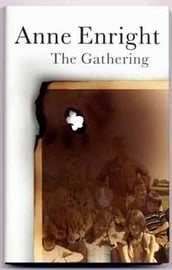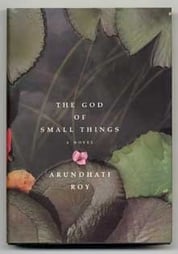The Man Booker Prize was created in 1969 with the aim of promoting the finest in fiction by a citizen of the United Kingdom, the Commonwealth, or the Republic of Ireland written during the preceding year. Prize winners are chosen by judges who make the selections for the best novel based on personal opinion alone. The cash value of this Prize is relatively low, with winners receiving only £50,000. However, the Man Booker Prize draws attention to works of fiction which might otherwise have gone unnoticed. As Ion Trewin, the late Literary Director of the Booker Prize Foundation stated, the true prize for the winners is the “significant increase in the sales of the winning book.” With a prize that is based wholly on opinion, it should come as no surprise that there have been more than a few controversies surrounding the Man Booker Prize over the years.
 One of the largest arguments against the Man Booker Prize is the selection process. Even judges have denounced the way in which books are selected. In 2001, the Scottish writer A. L. Kennedy called it a “pile of crooked nonsense,” saying that of the 300 novels that were nominated that year, she was the only one to actually read all of them. According to her, the Prize had become corrupt and based upon “who knows who, who’s sleeping with who, who’s selling drugs to who, who’s married to who, whose turn it is.”
One of the largest arguments against the Man Booker Prize is the selection process. Even judges have denounced the way in which books are selected. In 2001, the Scottish writer A. L. Kennedy called it a “pile of crooked nonsense,” saying that of the 300 novels that were nominated that year, she was the only one to actually read all of them. According to her, the Prize had become corrupt and based upon “who knows who, who’s sleeping with who, who’s selling drugs to who, who’s married to who, whose turn it is.”
Authors who have won the Prize have taken aim at the Booker, McConnell Ltd Company, founded by Booker McConnell, which sponsored the Prize until 2002. McConnell Ltd was a firm which dealt in the Caribbean with sugar, rum, and mining. It carries a heavy history of exploitation of its workers. The fifth winner, John Berger called the Prize distasteful and donated half of his earnings to socialist activists to fight against what he called the “modern poverty of the Caribbean.”
In other cases, books are chosen to avoid controversy. Anne Enright’s The Gathering, won in 2007, despite the fact that most of the committee preferred On Chesil Beach by Ian McEwan; however, the latter was so divisive among the committee that they opted to go with a book they deemed less than the best to avoid controversy.
Despite various controversies, the Man Booker Prize has produced some amazing and highly collectible works.
 |
The Gathering, Anne Enright - Winner, 2007
The surviving children of the large Hegarty clan are gathering in Dublin for the wake of their wayward brother, Liam, drowned in the sea. His sister Veronica keeps the dead man company, guarding their secret—something that happened to Liam at their grandmother's house in 1968. The Gathering is an insightful epic about three generations of family betrayal and redemption. |
 |
The Life of Pi, Yann Martel - Winner, 2002
Pi Patel, the son of a zookeeper, has an encyclopedic knowledge of animal behavior. When Pi is sixteen, his family emigrates from India to North America aboard a Japanese cargo ship, along with their zoo animals bound for new homes. The ship sinks, and Pi finds himself alone in a lifeboat, his only companions a hyena, an orangutan, a wounded zebra, and a 450-pound Bengal tiger. |
 |
Possession: A Romance, Antonia Susan Byatt - Winner, 1990
Possession traces a pair of young academics as they uncover a clandestine love affair between two long-dead Victorian poets. The novel flows between modern day and the Victorian Era allowing for comparison and critique of the two. Byatt was awarded much praise for the warmth with which she wrote as well as the overall style of this novel. |
 |
The God of Small Things, Arundhati Roy - Winner, 1997
The God of Small Things is Arundhati Roy's first and only novel to date. It tells the story of twin children and how they are impacted by the "Love Laws". The non-sequential narrative Roy employs mirrors the way memories come in and out of focus at different times. "They all crossed into forbidden territory. They all tempered with the laws that lay down who should be loved, and how, and how much". |









